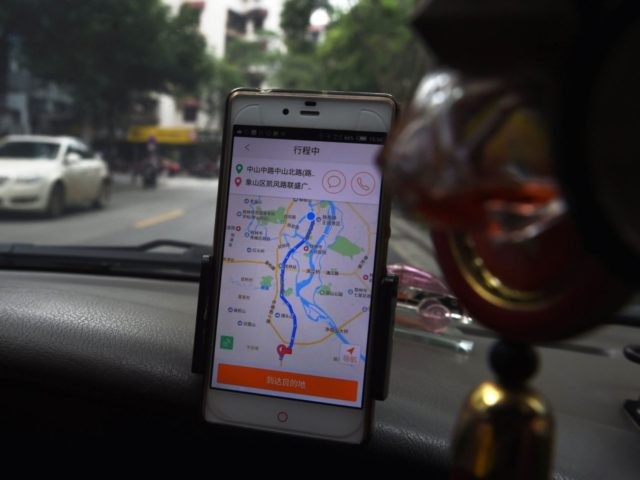With Apple’s relationships in China imploding, the company has announced that it will invest $1 billion in Didi Chuxing, known as “The Uber of China,” in what seems to be an effort to mend fences after a communist court allowed a local company to use the “iPhone” trademark.
Didi has a close relationship with the Chinese government, since it only operates government-licensed taxis. Once Didi began offering e-hailing for taxis and private cars, the communist bureaucracy ruled other e-hailing apps were illegal if the technology threatened to put licensed taxi companies out of business.
Re/Code and other tech sources see Apple’s $1 billion investment into Didi, which came together in the last three weeks, as an effort to mend fences in preparation for Apple’s CEO Tim Cook’s meetings with the Chinese leadership later this month.
According to Rob Enderle, head of research for the Enderle Group: “Thanks to the [Edward] Snowden disclosures, U.S. technology is broadly distrusted and the recent actions between the FBI and Apple have only fueled that fire, so [Communist] Party leaders [in China] have largely stopped using any U.S.-built technology and Apple products aren’t held in as high esteem as they once were.”
Steve Jobs signed his first Major deal for iPhone to enter the China’s 700,000 user 3G mobile phone market in 2009 with China Unicom. With the market now at 4G and 1,276,660,000 users, iPhone has over 240 million users in China. About 65 percent of the 1 billion worldwide Apple operating devices are now iPhones.
As a demonstration of how fast the relationship has soured, Apple reported that its first quarter in January saw sales of 74.78 million iPhones and a profit of $18.4 billion. The main engine behind the most profitable quarter of any public corporation in the history of the planet was iPhone’s market share leap in Greater China to 21 million units, or 27.6 percent of total Apple sales.
But on April 28, Apple reported that second quarter sales in Greater China had tanked by 26 percent, or 5.4 million units. The disastrous performance caused the iPhone to suffer its first quarterly sales decline in history and Apple’s first total sales decline since 2003.
Days later, Chinese regulators shut-down Apple’s iBook Store and iTunes.
Another week later, a Beijing city court announced that a local company, Xintong Tiandi Technology, is now free to make purses, wallets and phone cases emblazoned with the branded word “IPHONE”.
Apple fully understands the importance of its intellectual property, which the company values at $124.2 billion, according to the U.S. Patent and Trademark Office. The company tried to outsmart China’s notorious “trademark squatters” by registering the “iPhone” trademark in 2002, long before Apple’ own engineers knew their employer was secretly developing a mobile phone.
The investment in Didi Chuxing is unusual for Apple, which makes few investments outside of its control, and has showed virtually no interest in service-oriented companies. But the deal’s size, timing, and close relationship to the communist authorities could help Apple take a commanding lead in brining autonomous self-driving vehicles to China.
Tim Bajarin, president of San Jose’s Creative Strategies, told the SiliconValey.com blog that the funding “puts a stake in the ground in China that sends a very strong message to the Chinese government and the Chinese people that Apple is there to stay.”

COMMENTS
Please let us know if you're having issues with commenting.